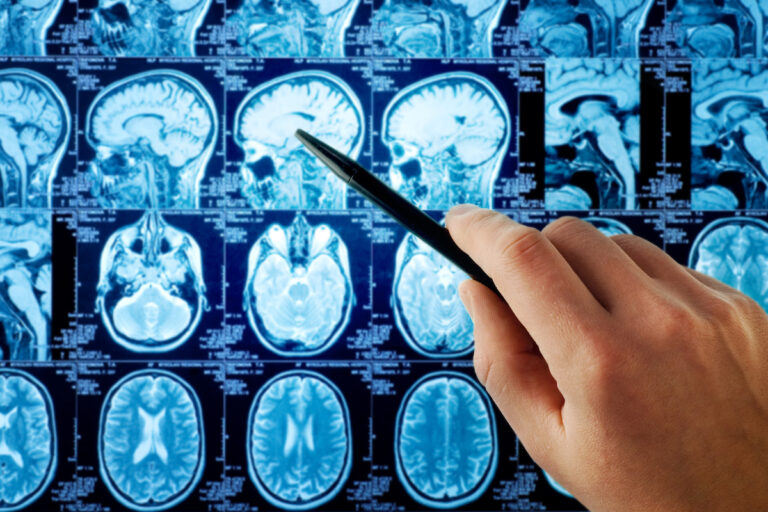Dementia has a profound impact on individuals and their families. The National Institute on Aging defines dementia as “the loss of cognitive functioning – thinking, remembering, and reasoning – to such an extent that it interferes with a person’s daily life.”
Contrary to popular belief, dementia is not a single disease but is a blanket term used to describe multiple conditions that affect cognitive functioning. By familiarizing ourselves with the different types of dementia, we can identify the specific challenges each type presents and proactively address them.
Offering compassionate memory care in Ormond Beach, Florida, Aden Senior Living understands the challenges associated with dementia for individuals living with the condition and their families. Our team is sharing information about the most common types of dementia and providing prevention tips and coping strategies to support individuals and their family members on this journey.
Common Types of Dementia

Alzheimer’s Disease
Alzheimer’s disease is the most prevalent type of dementia, accounting for approximately 60-80% of cases. It is characterized by memory loss, cognitive decline, and changes in behavior. Because increasing age is the most significant known risk factor, the majority of individuals living with Alzheimer’s disease are 65 and older.
Vascular Dementia
Vascular Dementia, the second most common type of dementia, is caused by reduced blood flow to the brain. It often occurs as a result of strokes or other conditions that damage blood vessels. Some of the most common symptoms of vascular dementia include problems with planning and organizing, difficulty following a series of steps (like a recipe), and trouble concentrating.
Lewy Body Dementia
Lewy Body Dementia is characterized by the presence of abnormal protein deposits, known as Lewy bodies, in the brain. It shares symptoms with both Parkinson’s Disease and Alzheimer’s Disease. Visual and nonvisual hallucinations and unpredictable changes in alertness or wakefulness are common signs of Lewy body dementia. Unlike Alzheimer’s disease, memory loss is not as prevalent during the early stages of this type of dementia; however, it could become more evident as the condition progresses.
Frontotemporal Dementia
Frontotemporal Dementia primarily affects the frontal and temporal lobes of the brain, leading to changes in behavior, personality, and language skills. Because of this, the most common symptoms associated with frontotemporal dementia include impulsive actions and behaviors, loss of motivation, and loss of empathy.
Preventing Dementia

While there is no known cure for any type of dementia, there are several preventive measures that can lower your risk and help delay or prevent its onset. Lifestyle changes like maintaining a healthy diet, challenging your mind with cognitive exercises, and physical activity all go a long way in promoting your overall health and wellness.
Furthermore, managing chronic conditions such as diabetes, hypertension, and high cholesterol will also help you lower your risk of developing one of the types of dementia.
Because dementia is a progressive condition, early detection is key to slowing down cognitive decline. Regular check-ups with your physician can help monitor your overall health, but it is also important for you to talk to your doctor if you notice any symptoms that could be signaling the onset of dementia.
If you or a family member has been diagnosed with dementia, living in a safe and supportive space, creating a structured routine, fostering meaningful connections, and utilizing memory aids can all help you cope. Our memory care community in Ormond Beach, Florida, does all this and more. Implementing signature programming, our Valeo™ memory care neighborhood maximizes each individual’s strengths and provides daily opportunities to find purpose and live joyfully.
Understanding the various types of dementia is essential for early detection, effective management, and support for individuals and their families. While we may not have control over all risk factors, we can implement preventive measures to reduce the likelihood of developing dementia.
Remember, if you or someone you know is experiencing symptoms of dementia, it is crucial to seek professional medical advice for an accurate diagnosis and appropriate support.
If you would like to learn more about our memory care services and how our Ormond Beach senior living community can enhance your life or the life of your family member, we invite you to visit our website or contact a member of the Aden Senior Living team.





